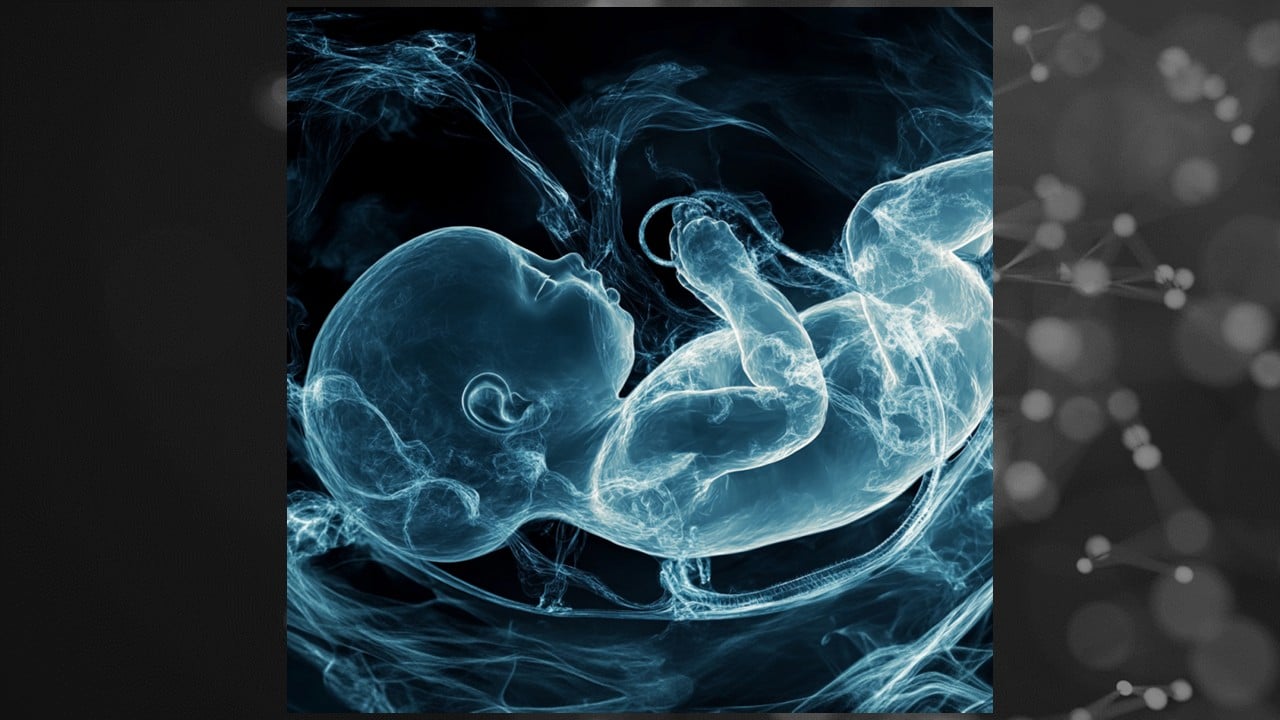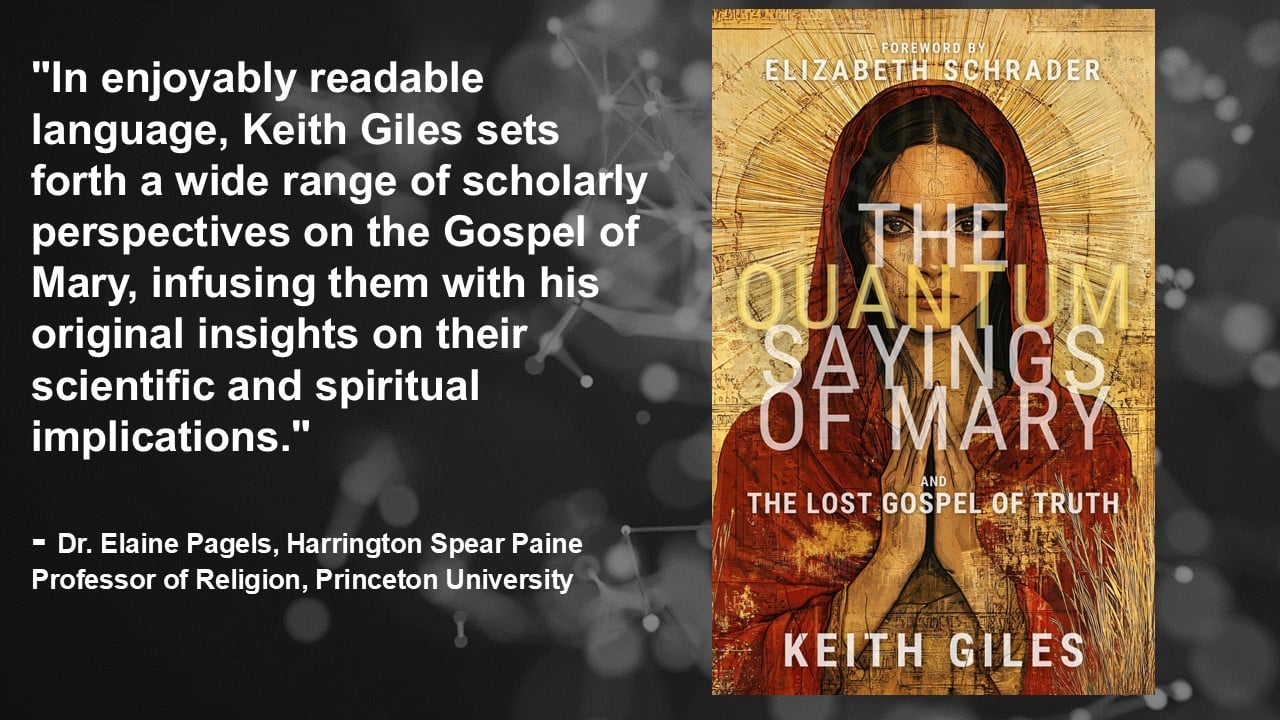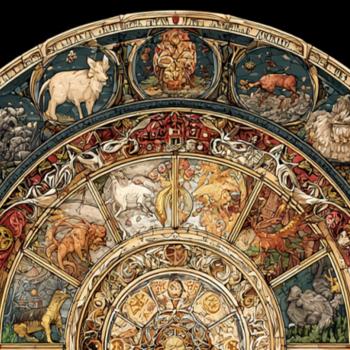
“Some say Mary was impregnated by the grace of the Holy Spirit, but they do not know what they say. How could the Feminine impregnate the Feminine?
“Mary is the virgin silence [parthenos] which no evil power defiles or distracts; she abides as the immaculate silence, incomprehensible to the Jews, to the Apostles, and to all those who claim to be sent ones [Apostles].
“The Teacher would not have said, “My Father who is in heaven…” if he had not been engendered by another Paternity than the one he had from his earthly father.
“The Teacher said to his disciples: ‘…enter into the House of the Father, but bring nothing with you, and take nothing you find.'” [Gospel of Philip vs. 17-18]
This section of the Gospel of Philip poses a series of questions to challenge several doctrinal assumptions of the early Christians, beginning with “Did the Holy Spirit impregnate Mary?” This question is a direct challenge to the Gospel of Matthew which makes the claim that Mary was “found to be with child from the Holy Spirit.” [see Matthew 1:18-25]. The Gospel of Luke also claims that the angel spoke to Mary and said, “The Holy Spirit will come upon you, and the power of the Most High will overshadow you. So the holy one to be born will be called the Son of God.” [See Luke 1:35]
The author of Philip’s Gospel appears to question that interpretation of events by asking the simple question: “How can the Feminine impregnate the Feminine?”
In other words, if the Holy Spirit is the Feminine aspect of the Godhead, does it make any sense to single out the Spirit of God as the source for the masculine elements necessary to fertilize the egg in Mary’s womb? And the answer is, “No, it doesn’t.”
However, more than merely questioning the logic of what is claimed in Matthew and Luke, the Gospel of Philip wants us to consider the fact that the incarnation of Christ wasn’t something that happened at conception, but something that transcended this event.
With that question still lingering in the air, this Gospel makes another point regarding the Paternity of Jesus by reminding us that, when Jesus mentions “My Father in Heaven…” he is admitting that he had an earthly, human father here on earth. This is irrefutable. This is undeniable. If Jesus had a Father in Heaven, then he – like everyone else – had a father here on earth as well.
Think about it. Consider it. How does that sit with you? When you think of who Jesus was, do you make room for the fact that Jesus was conceived in the womb the same way that you and I were? Do you concede that Jesus had a human father who impregnated Mary? Do you really understand how it is impossible that his conception and birth could have taken place in any other way?
The myth of the virgin birth is just that: a myth. In fact, the very idea of a virgin birth stems from a mistranslation and subsequent misunderstanding of a verse in Isaiah 7:14 which, in the Greek Septuagint translation of the text, says:
“Therefore the Lord himself will give you a sign: Behold, a virgin [parthenos] shall conceive, and bear a son, and shall call his name Immanuel.”
However, the Hebrew version of this same text simply says that a “young woman” will bear a son, not a virgin. In other words, there is no implied miracle in the Hebrew version of the same text. The idea of a “virgin birth” was something imported from other pagan myths of the time.
So, when the author of the Gospel of Philip challenges this notion that Jesus was “born of a virgin” or that the Holy Spirit was his father, he is correcting the notion that the birth of Jesus was facilitated by a miraculous spiritual union.
It is worth noting that the Apostle Paul never makes any mention of the virgin birth of Jesus, and his epistles pre-date all of the Gospels, with the possible exception of the Gospel of Thomas. If the belief in a miraculous virgin birth was truly one of the earliest teachings of the Christian Church, one would expect Paul’s writings to at least mention it in passing. Ignatius (110 AD) wrote about the virgin birth, but any claims that this belief originated in pre-Christian Judaism are without merit. There is simply no evidence of such a prophecy about the Messiah.
So, the Gospel of Philip not only challenges the claims made in the Gospels of Matthew and Luke about the conception of Jesus, it also questions the need for Jesus to have been conceived in some miraculous way; as if being born the “ordinary way” we all were born somehow disqualifies Jesus as the Christ.
This is something we will cover in our next section, but for now, these questions serve to awaken us to something deeper and more profound about the birth of Jesus and the relationship between the human Jesus and the spiritual Christ.
This section ends with a cryptic saying from Jesus that, at least at first, seems to come out of nowhere and shed little light on the discussion above:
“The Teacher said to his disciples: ‘…enter into the House of the Father, but bring nothing with you, and take nothing you find.'”
One way of understanding this in the context of our beliefs about the progeny of Jesus might be that we should not bring our prior assumptions into the Father’s House but simply observe what is true and obvious.
In other words, rethink what you believe to be true. Question your answers. Doubt your certainty. Start over with a blank slate and learn to think differently than you were taught.
This is the requirement of “metanoia” and without passing through this phase, we cannot truly see or know anything at all.

The new book from Keith Giles, “The Quantum Gospel of Mary and the Lost Gospel of Truth” releases May 20th on Amazon.
Read “The Quantum Sayings of Jesus: Decoding the Lost Gospel of Thomas”, available now on Amazon. Order HERE>
Keith Giles is the best-selling author of the Jesus Un series. He has been interviewed on CNN with Anderson Cooper, Coast to Coast Radio with George Noory, USA Today, BuzzFeed, and John Fugelsang’s “Tell Me Everything.”
He co-hosts The Heretic Happy Hour Podcast and his solo podcast, Second Cup With Keith which are both available on Spotify, Amazon, Apple, Podbean or wherever you find great podcasts.













